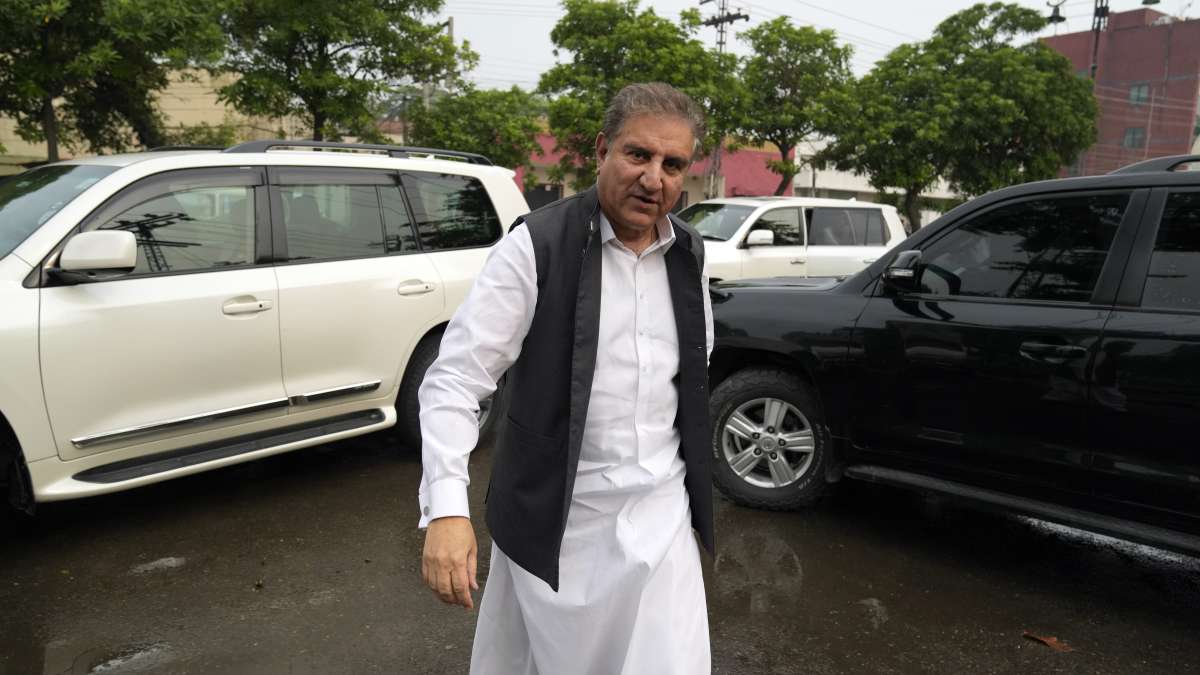
[ad_1]

Islamabad: Pakistan’s election commission has disqualified Shah Mahmood Qureshi, a close aide of jailed ex-Prime Minister Imran Khan, from contesting elections for five years after the former foreign minister was sentenced to 10 years each in prison for leaking state secrets. The disqualification of Qureshi, 67, comes five days before the February 8 general elections, which Khan’s Pakistan Tehreek-e-Insaf party is contesting despite a state crackdown and without its famous election symbol, the bat. The announcement comes days after a special court, established under the Official Secrets Act, awarded Qureshi 10 years imprisonment in the high-profile cypher case along with Khan.
Citing the special court’s judgement dated January 30, 2024, the Election Commission of Pakistan (ECP) said that any convicted individual, in accordance with the Constitution and the law, cannot participate in elections, The Express Tribune reported. “As a consequence, Makhdoom Shah Mehmood Qureshi has become disqualified under Article 63(1)(h) of the Constitution of the Islamic Republic of Pakistan read with Section 232 of the Elections Act, 2017. Therefore, Mr Makhdoom Shah Mehmood Qureshi is disqualified to contest General Elections-2024 and any subsequent elections for a period of five years,” the ECP said on Saturday.
What is cipher case?
The cipher case pertains to a piece of paper, purported to be a diplomatic cable — the cipher — that Khan had waved at a public rally on March 27, 2022, and naming the US, had claimed that it was ‘evidence’ of an “international conspiracy” to topple his government. The case was filed against Khan, 71, and Qureshi on August 15 last year by the Federal Investigation Agency, which accused both of violating the secrecy laws while handling the cable sent by the Pakistan embassy in Washington in March 2022.
Pakistan elections
Notably, the Pakistan National Assembly had 342 seats– 272 of which are directly elected, 60 are reserved for women and 10 for religious minorities. According to the country’s constitution, at least 70 seats reserved for women and religious minorities are allocated to the political parties as per their proportional representation. After fresh delimitation, the National Assembly (NA) would consist of 336 seats, including 266 general seats, 60 seats reserved for women, and 10 for non-Muslims, a decrease of six seats overall.
(With inputs from agency)
[ad_2]
Source link